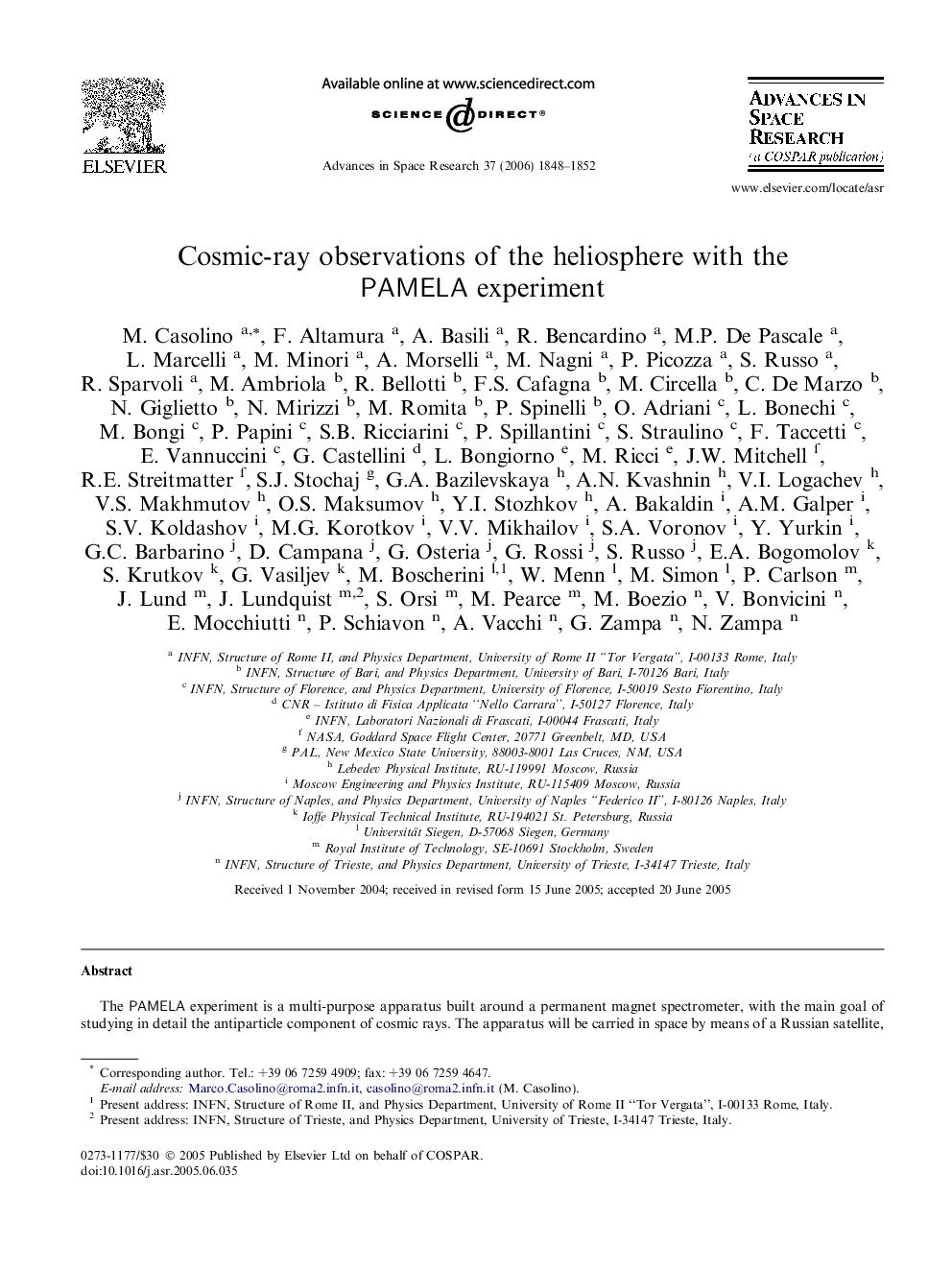| Article ID | Journal | Published Year | Pages | File Type |
|---|---|---|---|---|
| 1768450 | Advances in Space Research | 2006 | 5 Pages |
Abstract
The PAMELA experiment is a multi-purpose apparatus built around a permanent magnet spectrometer, with the main goal of studying in detail the antiparticle component of cosmic rays. The apparatus will be carried in space by means of a Russian satellite, due to launch in 2005, for a three year-long mission. The characteristics of the detectors composing the instrument, alongside the long lifetime of the mission and the orbital characteristics of the satellite, will allow to address several items of cosmic-ray physics. In this paper, we will focus on the solar and heliospheric observation capabilities of PAMELA.
Related Topics
Physical Sciences and Engineering
Earth and Planetary Sciences
Space and Planetary Science
Authors
M. Casolino, F. Altamura, A. Basili, R. Bencardino, M.P. De Pascale, L. Marcelli, M. Minori, A. Morselli, M. Nagni, P. Picozza, S. Russo, R. Sparvoli, M. Ambriola, R. Bellotti, F.S. Cafagna, M. Circella, C. De Marzo, N. Giglietto, N. Mirizzi, M. Romita,
